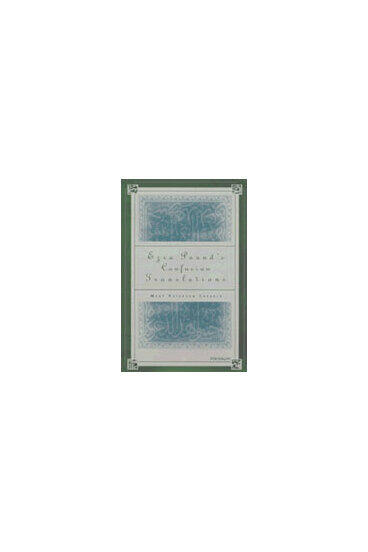Ezra Pound's Confucian Translations
Provides bold insights into Pound's Fascism.
Description
Ezra Pound professed a "belief" in Confucianism from the early 1930s till the end of his life. His interpretation of Confucianism, however, changed over time, and those changes are reflected in the four translations of Confucian texts he produced between 1928 and 1954. Based on painstaking new research, Ezra Pound's Confucian Translations for the first time traces the evolution of Pound's Confucianism during the historical and personal turmoil of this period.
Pound's Confucian translations are less correct "philology" than the "re-creation" of works that he hoped would have a potent influence on the twentieth-century West. What Pound first admired in Confucianism was a respect for individuality simultaneous with a concern for social order. From the late 1930s through the Second World War, Pound developed a "totalitarian" Confucianism whose consummation would be a "harmony" of man, earth, and heaven. After the defeat of the Axis powers in 1945 and Pound's arrest on charges of treason against the United States for his activities in Italy during the war, his Confucianism reverted to an emphasis on verbal precision and the importance of individual integrity.
In addition to tracing the evolution of Pound's beliefs, Ezra Pound's Confucian Translations elucidates the Confucian elements in The Cantos and suggests a reading of that epic from the point of view of Pound's Confucianism.
Ezra Pound's Confucian Translations will be crucial to students of Pound and will also be read by sinologists, scholars of comparative literature, and anyone studying translation.
Mary Paterson Cheadle earned her Ph.D. at the University of California at Berkeley. She is an independent scholar living in Seattle.

